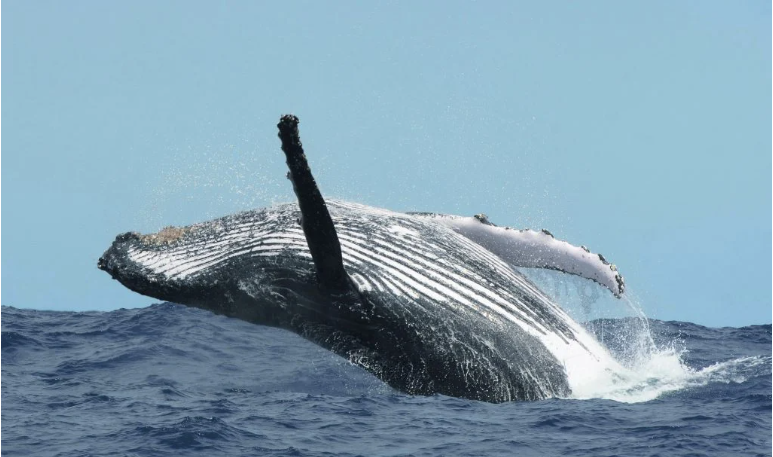The Quiétude network has issued a cautionary alert following reports received early last week about « close and prolonged interactions » with a whale named « Moustache. »
« During our sea monitoring missions, we have observed these interactions with certain boats and swimmers. » Quiétude notes that, similar to « Méréva » in 2018 and « Marguerite » in 2023, Moustache « seems very curious and approaches closely. » Naturally, divers and other sea observers may be tempted to approach the whale, which can lead to « repeated and continuous interactions. »
These interactions can have serious consequences, both for the cetacean and potentially for humans who might face real risks. Quiétude explains that « Moustache » has already displayed signs of intimidation (such as slashing with its pectoral fin, tail fluke strikes, growls, and repeated charges) and has prevented swimmers from returning to their boats.
This phenomenon was previously observed with « Méréva » in 2018. The safety of water practitioners can be compromised when the whale exhibits competitive behavior between individuals, defensive actions against a predator, or in response to an imminent threat. It is crucial to recognize these behaviors to avoid endangering oneself.
Moreover, the over-solicitation of « Moustache » « can lead to changes in its behavior and disrupt its vital activities (rest, reproduction, socialization with peers), » states Quiétude. Similarly, while one might be tempted to stroke a whale that approaches gently, doing so not only poses a personal risk but also endangers the whale.
Endangerment
The Musée d’Histoire Naturelle in Paris is clear on this point: « The transmission of pathogens (such as those causing influenza) between humans and cetaceans can occur through direct contact or via airborne particles. One should never touch a cetacean from a boat or handle a stranded animal without proper training and protective gear (masks, gloves, etc.). »
Cetaceans are already exposed to numerous other dangers: chemical pollution, microplastics and toxins, biological pollution (as our wastewater contains many viruses, bacteria, and parasites to which cetaceans are particularly vulnerable, given their already weakened immune systems), maritime traffic, and tourism pressure (which causes numerous disturbances and sometimes collisions), as well as noise pollution and climate change.
All these factors influence whale behavior. In the case of « Moustache, » the danger is even more acute due to its curious nature. While there have been instances of divers or fishermen finding themselves in difficult situations, it is scientifically impossible for a whale to swallow a human.
However, its tail fluke is extremely powerful and can cause significant damage to a boat. Fatal accidents of this nature have occurred.
Antoine GESLIN
Quiétude’s Recommendations in Case of Interaction:
- If a whale approaches and attaches itself to your boat, wait for it to move away and then slowly depart from the observation area.
- If you recognize this behavior, do not enter the water with the whale or cease your water activities while remaining calm.
- It is strictly forbidden to touch the animals.
Source : lequotidien



